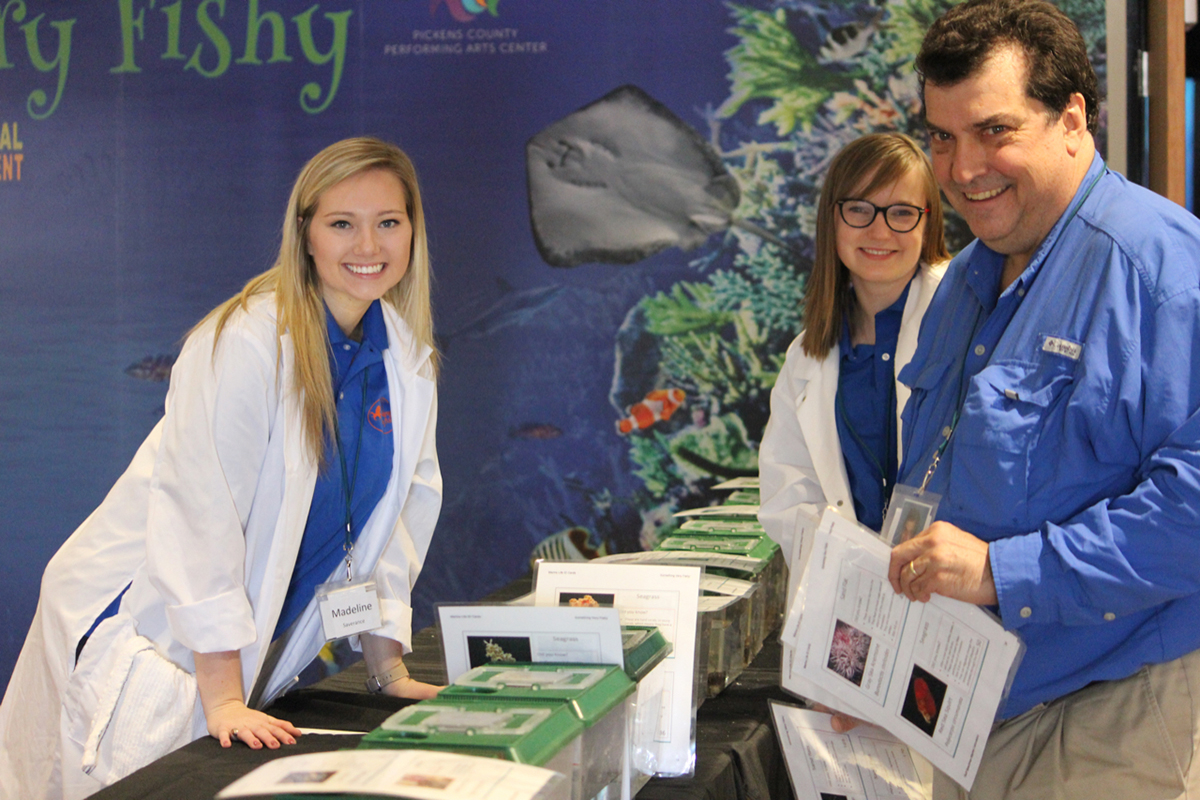Research could help develop nanocrystalline metals with unprecedented properties
Fadi Abdeljawad of Clemson University is leading new research into a unique class of metallic alloys that show promise for a broad range of applications, including the development of cars and airplanes with improved fuel efficiency.
Abdeljawad, a materials scientist and an assistant professor of mechanical engineering, said that he and his team are working to better understand how nanocrystalline metallic alloys respond to extreme environments, such as heat and external forces. Their work could be the next step in creating a new generation of alloys with unprecedented properties, he said.

“Once we have this fundamental understanding of physics at the nanoscale we can design nanomaterials that are lighter and stronger, which means our cars and airplanes could be lighter and therefore more fuel efficient,” he said. “We could also make electronic components with even smaller sizes than they currently are. What that means is that our phones and laptops would be lighter without compromising their functionality.”
The alloys could also be used in a host of other fields, including fuel cells and the future generation of nuclear reactors for energy applications, he said.
Abdeljawad’s research is funded through the Army Research Office’s Young Investigator Program.
“Professor Abdeljawad is a promising young professor who identified an understudied but key aspect of nanocrystalline alloys that could support the Army’s effort to develop these materials for use in next-generation combat vehicles,” said Dr. Michael Bakas, synthesis and processing program manager at the Army Research Office in the U.S. Army Combat Capabilities Development Command’s Army Research Laboratory. “This grant is an example of how the DEPSCoR program enables cutting edge research from early career scientists in support of Army priorities.”
Atul Kelkar, chair of Clemson’s Department of Mechanical Engineering, said the awards are highly competitive and celebrated because they are seen as a sign of future success.
“Dr. Abdeljawad is driving cutting-edge research that could enable a wide range of new technologies for Army and civilian use,” Kelkar said. “I congratulate him. This is a highly deserving honor.”
Metals and alloys are composed of interlocking, three-dimensional crystals. What is unique about nanocrystalline alloys is how small the crystals are– less than 100 nanometers.
To get an idea of how tiny that is, imagine taking a piece of hair and slicing it lengthwise 1,000 times. Each slice would be about the width of a crystal.
It’s impossible to see with the naked eye, but when a metal is heated, some of its crystals grow, while others shrink. It’s a behavior similar to what you see in soap bubbles, he said.
“It turns out that a lot of the exciting properties we see in nanocrystalline metals are due to their small crystal size,” Abdeljawad said. “Our research deals with how these crystals and their interfaces interact with alloys and how that affects the thermal stability of these materials.
“We will be looking at how nanomaterials behave at very high temperatures, the kind of temperatures you would experience in a jet engine or a car’s engine block or even more extreme environments.”
Abdeljawad and his team are planning to develop theoretical frameworks, based on alloy thermodynamics, that describe interface physics in nanocrystalline metals.
“These frameworks result in complex equations– partial differential equations– which means we have to solve them numerically,” Abdeljawad said. “Then we will develop numerical algorithms and write codes to simulate them on large computers, mainly Clemson’s Palmetto Cluster, a high-performance computing cluster.”
Daniel Noneaker, associate dean of research in Clemson’s College of Engineering, Computing and Applied Sciences, congratulated Abdeljawad, saying the Young Investigator Program is one of the Army Research Office’s highest honors given to researchers early in their careers.
“The award is a testament to Dr. Abdeljawad’s hard work and creative solutions to complex challenges,” Noneaker said. “He is solidly on the path to a fruitful career in higher education.”
Abdeljawad said what excites him most about the award is conducting technical research with his students. The award will support the work of two graduate students for three years.
Abdeljawad also has eight undergraduate students working with him as part of a Creative Inquiry course, “The Nanomaterials Studio.”
Tanju Karanfil, Clemson University’s vice president for research, said that Abdeljawad’s award underscores the strength of the University’s research enterprise.
“In addition to Dr. Abdeljawad’s award, Clemson has six new CAREER awards from the National Science Foundation and one DARPA Young Faculty Award,” Karanfil said. “All of the awards go to junior faculty. This bodes well for the future as we continue molding Clemson into one of the nation’s preeminent research institutions. The awards also highlight the impact of our support services for research, including the Clemson CAREER Academy.”
Abdeljawad said he was honored and humbled to receive the award.
“This is a highly competitive award, and I feel very fortunate to have won it,” he said. “The credit also goes to my students. They do a lot of the technical work and deep thinking. I also want to acknowledge the strong support system here at Clemson.”
Anand Gramopadhye, dean of the College of Engineering, Computing and Applied Sciences, congratulated Abdeljawad on the award.
“This is an outstanding achievement and external validation that Dr. Abdeljawad is conducting high quality research,” Gramopadhye said. “His work not only advances research in a critical field but helps create the workforce of the future.”

